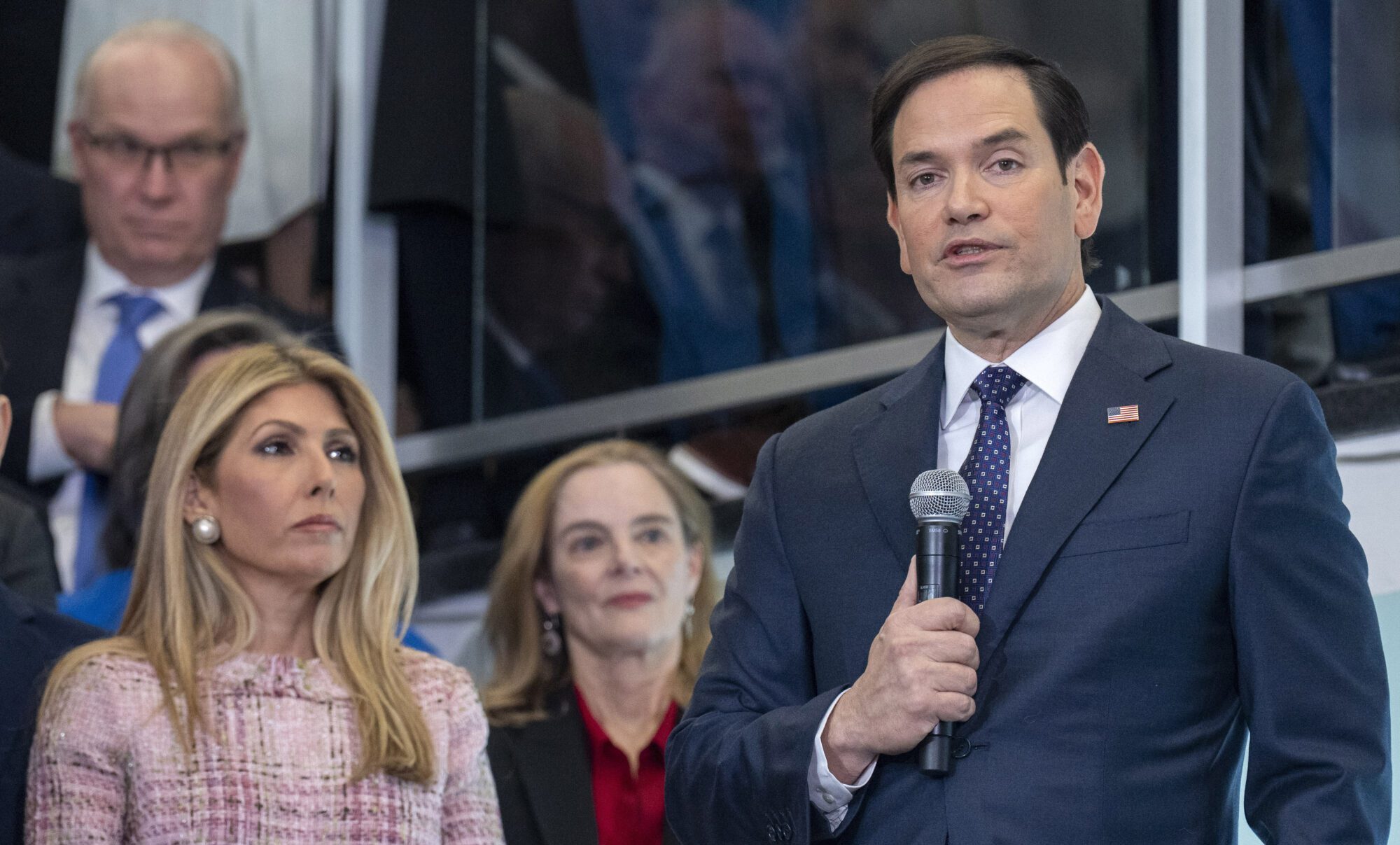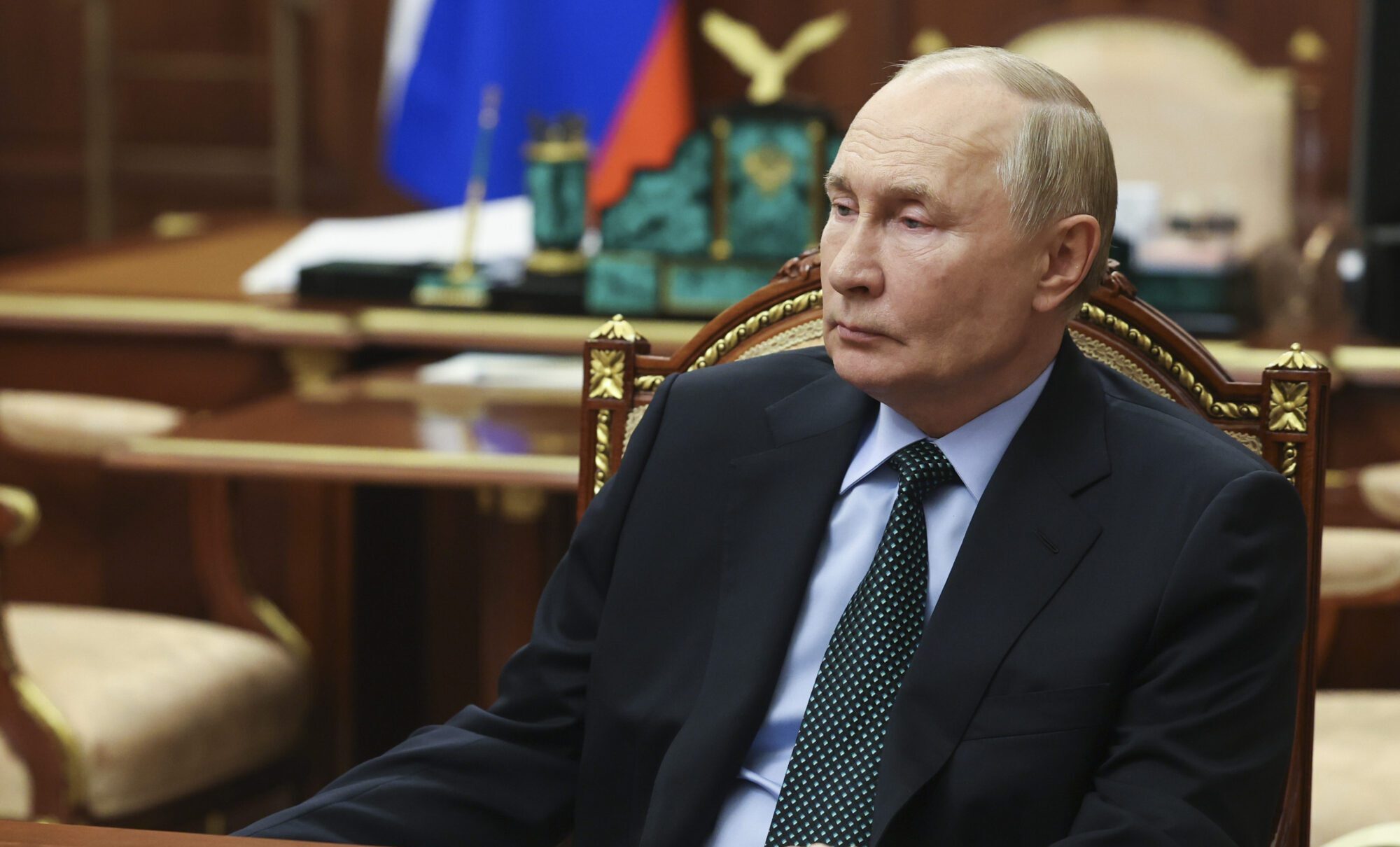YP – No ruling by 11th Circuit in Scruggs civil contempt appeal
Pacer records indicate there was oral arguments taken on March 11, with Keker attorney Warren Braunig arguing for Scruggs, and Barbara Ellis Stanley on behalf of E.A. Renfroe.
There have been no recent filings since those arguments were heard, but below you’ll find a brief filed by Scruggs back in January.
YP will continue to watch the 11th Circuit for any new updates.
I. INTRODUCTION
Appellants Richard F. Scruggs and the Scruggs Law Firm, P.A. (collectively “Scruggs”) continue to advocate that Judge Acker’s June 5, 2008 Order, and accompanying Memorandum Opinion (collectively “Civil Contempt Order”),1 was a final and appealable order, pursuant to 28 U.S.C. § 1291. Scruggs has filed a direct appeal, In re: Richard F. Scruggs and the Scruggs Law Firm, P.A., No. 08-13724-DD, which is fully briefed before this Court. Should the Court agree that the Civil Contempt Order is final, then this interlocutory appeal of the same order is superfluous and should be put aside. Should this Court, however, determine that the Civil Contempt Order is not final, the Civil Contempt Order satisfies the test for interlocutory review laid out by 28 U.S.C. § 1292.
Appellee E.A. Renfroe & Co. (“Renfroe”) does not dispute either of these propositions. “Renfroe believes that the June 5, 2008 order was a final order for the reasons stated in its [August 13, 2008 response to this Court’s jurisdictional question in the direct appeal].” (Appellee’s Brief, at 7.). Moreover, Renfroe states that, if the Civil Contempt Order was not final, it “does not oppose an interlocutory appeal.” Renfroe’s only argument relating specifically to this interlocutory appeal, should the Court reach it, is whether this Court may review the interrelated question of Judge Acker’s non-recusal. As explained in Scruggs’s Opening Brief, and never refuted by Renfroe, a Court of Appeals hearing an interlocutory appeal may decide not merely the question certified but all aspects of the order, including antecedent issues. See Harris v. Luckey, 918 F.2d 888, 892 (11th. Cir. 1990).
1 Docs. # 338, 339.
1
Although the legal challenges to the Civil Contempt Order were fully briefed in the course of the direct appeal, Renfroe now advances three nominally new but largely re-packaged arguments that it believes support the district court’s flawed Civil Contempt Order. As discussed below, all of these must fail. First, Renfroe posits a number of different (and sometimes conflicting) subjective interpretations of the district court’s Preliminary Injunction language, all the while ignoring this Court’s clear guidance that a person may only be liable for contempt if the plain language of the order prescribing conduct was “clear, definite, and unambiguous.” See Romero v. Drummond Co., 480 F.3d 1234, 1244 (11th. Cir. 2007); Ga. Power v. NLRB, 484 F.3d 1288, 1291 (11th. Cir. 2007). Second, Renfroe misses the mark by suggesting that Scruggs’s violation of the Injunction has never been decided by this Court and therefore cannot be the “law of the case,” even though Scruggs seeks only a narrower (but just as decisive) holding that the district court refused to follow this Court’s prior determination that the Injunction included a law-enforcement exception. Third, Renfroe relies on an inapposite Seventh Circuit case, United States v. Balint, 201 F.3d 928 (7th. Cir. 2000), to argue that Scruggs’s appeal is moot because Scruggs satisfied the joint and several contempt sanction, but disregards the critical factual distinction that, unlike in Balint, the party taking the appeal (Scruggs) is the same party who paid the contempt fine.
II. ARGUMENT AND CITATIONS OF AUTHORITY
A. If the Court Decides the Civil Contempt Order is not Final, the Court Should Retain Jurisdiction over this Order on an Interlocutory Basis.
Both parties agree that the Civil Contempt Order is a final, appealable order. See 28 U.S.C. § 1291. If this Court agrees, then this interlocutory appeal should be
2
disregarded. In the alternative, section 1292(b) authorizes interlocutory review of the Civil Contempt Order, for the reasons stated in Appellants’ Opening Brief, pages 8-11. Renfroe does not argue otherwise. (Appellee’s Brief, at 6-7.)
B. Should the Court Review this Matter on an Interlocutory Basis, It May Still Decide the Question of Whether Judge Acker’s Failure to Recuse Himself Constituted an Abuse of Discretion.
Again, both parties agree that if the Court is reviewing the Civil Contempt Order as a final order, the Court may simultaneously determine whether Judge Acker abused his discretion by failing to recuse himself. Renfroe incorrectly argues, however, that, if the Civil Contempt Order is reviewed on an interlocutory basis, the district court’s erroneous non-recusal must be ignored.
“[T]he jurisdiction of this court is not confined to the precise question certified by the district court because the statute presents the ‘order’ to us, not merely the question.” Harris, 918 F.2d at 892. An appellate court reviewing an order pursuant to 28 U.S.C. § 1292 may “address any issue fairly included within the certified order.” U.S. v. Phillip Morris USA, Inc., 396 F.3d 1190, 1194 (D.C. Cir. 2005) (citing Yamaha Motor Corp. USA v. Calhoun, 516 U.S. 199, 205 (1996)). In Phillip Morris, the D.C. Circuit held that it could consider whether disgorgement was allowed as a remedy, even though the certified order addressed only whether the disgorgement sought exceeded allowable amounts, because that question was “a necessary antecedent” in the second order. Id. at 1195; see also David G. Knibb, Federal Court of Appeals Manual (5th ed.), § 5:6 (2007) (court of appeals may consider “preliminary issues” that were “necessarily antecedent” to the order certified).
3
Judge Acker’s failure to recuse himself was a “necessary antecedent” to the Civil Contempt Order. But for Judge Acker’s non-recusal, this Civil Contempt Order (and its harsh denunciations of Scruggs and United States District Judge Roger Vinson) would not exist; instead, the issue would have been decided by another judge. The recusal issue is inextricably bound up with the Civil Contempt Order, even though that issue was decided a few months earlier. Indeed, Scruggs’s sole basis for seeking recusal was that Judge Acker’s involvement in the (ultimately unsuccessful) criminal contempt case against Scruggs would create, at bare minimum, an appearance of bias by Judge Acker against Scruggs.
Renfroe’s argument that the January 4, 2008 non-recusal order would not, standing alone, satisfy the requirements for a 1292(b) appeal, (Appellee’s Brief, at 9-10), is entirely beside the point. Scruggs do not seek 1292(b) review of that order independently, but instead ask the Court to decide the recusal question as an issue “necessarily antecedent” to, and bound up with, the Civil Contempt Order. Moreover, the fact that Scruggs may have no other opportunity to appeal (because he is not a party to the case and cannot control its outcome) militates further in favor of allowing the issue to be resolved as part of this appeal, lest the opportunity forever be lost.
C. The Civil Contempt Order Should Be Vacated Because the District Court Lacked Jurisdiction Over Scruggs to Find Him in Civil Contempt.
The legal question of jurisdiction is fully briefed. Appellants incorporate by reference Section VI.A of their Opening Brief, and Section II.A of their Reply Brief in In Re Richard F. Scruggs and the Scruggs Law Firm, No. 08, 13724-DD.
4
D. Renfroe’s Newfound Interpretation of the Plain Language of the District Court’s Preliminary Injunction Still Does Not Support a Finding of Contempt, and Therefore the Civil Contempt Order Must Be Vacated.
An individual may not be held in contempt unless he violated an order that was “clear, definite, and unambiguous” in prescribing the allegedly contumacious conduct. See Romero, 480 F.3d at 1244; Ga. Power, 484 F.3d at 1291. Repeatedly throughout this briefing, Renfroe has advanced an interpretation of the Injunction that is at odds with Scruggs’s interpretation. But Renfroe has never once mentioned, much less grappled with, this Court’s requirement that a court order be enforced based on its plain language, “constru[ing] any ambiguities or uncertainties in such a court order in a light favorable to the person charged with contempt.” Ga. Power, 484 F.3d at 1291.
The plain language of the Injunction, forbidding a subject party from disclosing, using, or misappropriating any documents covered by the Injunction “unless to law enforcement officials at their request” is most easily read to authorize Scruggs’s act of turning over documents to Mississippi Attorney General Hood, who indisputably requested such documents. At most, Renfroe can establish that the Injunction’s plain language was vague and unclear.
Renfroe first argues that the Injunction clearly forbid Scruggs’s conduct because the district court, which authored the injunction, thinks it did. (Appellee’s Brief, at 11-12). Were that the rule, however, a district court’s subjective interpretation of its own injunctions would be immune from appellate review. In fact, this Court, by focusing on the plain language of a court order and construing ambiguities against a finding of contempt, precludes reliance on the post hoc
5
rationalization of an aggrieved district court. If anything, the fact that United States District Judge Roger Vinson, reviewing the same Injunction language in the context of the criminal contempt case against Scruggs, reached the very opposite conclusion about the meaning of the Injunction is proof positive that the Injunction is subject to completely different interpretations, and thus ambiguous.
Renfroe’s reliance on the different definitions of “deliver” and “disclose” in Black’s Law Dictionary to further its interpretation is similarly misguided. The Injunction’s second paragraph authorized the disclosure of documents and other materials described in the Injunction’s first paragraph to law enforcement officials at their request. It is difficult to imagine how one could disclose a document (as opposed to disclosing facts or information) without providing it or turning it over. Even Renfroe cannot make up its mind about what the Injunction’s second paragraph actually allowed. During the briefing of the direct appeal, Renfroe posited that the second paragraph only allowed “discussing” the documents with law enforcement officials. (Appellee’s Brief, No. 08-13724-DD, at 18.). Now, Renfroe suggests that Scruggs “could ‘disclose’ anything he knew to Hood at Hood’s request.” (Appellee’s Brief, No. 08-14716-DD, at 14). Of course, the Injunction itself says something yet again different. This is the height of ambiguity, and an ambiguous order precludes a finding of contempt. Romero, 480 F.3d at 1244.
In addition, Scruggs incorporate by reference the arguments in Section VI.B.1 of their Opening Brief, and Section II.B.1 of their Reply Brief in In Re Richard F. Scruggs and the Scruggs Law Firm, No. 08, 13724-DD.
6
E. Because this Court Has Already Determined that the Injunction Allowed Disclosure of Documents to Law-Enforcement Officials, the Civil Contempt Order Must Be Vacated as Contrary to the “Law of the Case.”
Renfroe’s “new” arguments about the “law of the case” doctrine demonstrate the same old unwillingness to engage Scruggs’s legal claim. Renfroe posits that the “law of the case” doctrine is inapplicable because this Court did not previously decide whether the law-enforcement exception applied to Scruggs’s conduct. (Appellee’s Brief, at 16-17). But Renfroe ignores (again) what issue Scruggs asserts is the “law of the case,” namely just that a law-enforcement exception existed on the face of the Injunction. “Under the law of the case doctrine, [the resolution of] an issue decided at one stage of a case is binding at later stages of the same case,” whether that rule of law is decided expressly or by necessary implication. Schiavo ex rel. Schindler v. Schiavo, 403 F.3d 1289, 1291 (11th. Cir. 2005) (internal citations and quotations omitted).
This Court already determined that the Injunction includes an express law-enforcement exception that authorizes a subject party to turn over documents upon request:
The sisters also argue that the injunction exposes them to criminal liability in Mississippi for violating subpoenas they have received requiring them to produce documents to a grand jury there. No, it doesn’t. As we have said twice, the injunction specifically allows disclosure of the documents to ‘law enforcement officials.’
E.A. Renfroe & Co. v. Moran, 249 Fed. Appx. 88, 93 (11th. Cir. 2007) (emphasis added). The district court’s conclusion, essential to its Civil Contempt Order, that there was no exception in the Injunction for providing documents to law
7
enforcement officials at their request,2 could hardly be more contradictory with this Court’s prior pronouncement. Because it violates the “law of the case,” the Civil Contempt Order must be reversed. See Westbrook v. Zant, 743 F.2d 764, 773 (11th. Cir. 1984).
In addition, Scruggs incorporate by reference the arguments in Section VI.B.2 of their Opening Brief, and Section II.B.2 of their Reply Brief in In Re Richard F. Scruggs and the Scruggs Law Firm, No. 08, 13724-DD.
F. Scruggs’s Payment of the $65,000 Compensatory Sanction Does Not Moot This Appeal.
Renfroe also recasts its earlier-filed Motion to Dismiss the direct appeal on mootness grounds as a basis for upholding the Civil Contempt Order on interlocutory appeal, arguing that Scruggs’s payment of the $65,000 joint and several civil contempt sanction moots this appeal. Renfroe’s reasoning remains flawed.
First, a long line of cases support the proposition that a party’s payment of a judgment or sanction does not prohibit that party from taking appeal of the underlying judgment, and then recovering that payment if he is successful. See, e.g., Graddick v. Newman, 453 U.S. 928, 945 n.1 (1981) (Rehnquist, J., concurring); County of Dakota v. Glidden, 113 U.S. 222, 224-25 (1885); Alvarez Perez v. Sanford-Orlando Kennel Club, Inc., 518 F.3d 1302, 1306-1308 (11th. Cir. 2008); Ferrell v. Trailmobile, Inc., 223 F.2d 697, 698 (5th. Cir. 1955). “Since property transferred or money paid involuntarily pursuant to a judgment can be
2 Doc. # 338, at 6-8.
8
recovered, execution of the lower court’s judgment pending appeal normally does not render the case moot.” Graddick, 453 U.S. at 945 n.1; see also Alvarez Perez, 518 F.3d at 1306 (rejecting argument “that satisfaction of the judgment rendered the case moot and ousted this Court of jurisdiction”).
Second, Renfroe’s citation to United States v. Balint, 201 F.3d 928 (7th. Cir. 2000), for the proposition that “[a] challenge to a joint and several judgment is moot when one of the joint tortfeasors has fully satisfied the judgment,” (Appellee’s Brief, at 19-20), is plain wrong. In Balint, two defendants appealed a restitution order that a third defendant had already paid. Id. at 931. Thus, the Seventh Circuit concluded: “Even if the trial court erred in ordering the six original defendants to repay the city, our stating so would provide no relief to [the appellants]. We cannot relieve them of an obligation that has already been extinguished by another party. . . . [W]e cannot order the City to refund to these defendants money that one of their colleagues paid.” Id. at 936 (emphasis added). The Balint Court then added a Compare cite to Corley v. Rosewood Care Center, Inc., 142 F.3d 1041 (7th. Cir. 1998), a case where (as here) the appellant himself paid a sanction and then brought an appeal. Balint, 201 F.3d at 936. In Corley, the Seventh Circuit held that “[p]ayment of the sanction does not moot the appeal because the appellate court can . . . order[] that the sum paid in satisfaction of the sanction be returned.” 142 F.3d at 1057. Renfroe would stretch the Balint case far beyond its bounds and, in the process, run afoul of the numerous precedents that a party who satisfies a judgment pending appeal shall not be deemed to forfeit his appeal.
9
Third, regardless of whether Scruggs ultimately will be able to recover the monies paid in satisfaction of the sanction, Scruggs retain a cognizable interest in the outcome of this appeal because they seek an order reassigning all matters relating to Scruggs in the Renfroe v. Rigsby case to a different district judge. There can be no doubt that such an order would provide real and concrete benefit to Scruggs, especially given Judge Acker’s stated intent to hold Scruggs accountable as an indemnitor for any damages imposed on the Rigsbys (a decision rendered without motion or hearing, much less proof of a written indemnification agreement). So long as this Court has some “ability to afford meaningful relief” to an appellant, the appeal is not moot. See United States v. Al-Arian, 514 F.3d 1184, 1189 (11th. Cir. 2008).
Scruggs further incorporate by reference the arguments in Section II.A.1, II.A.2, and II.B of Appellants’ Opposition to Renfroe’s Motion to Dismiss, Aug. 25, 2008, in In Re Richard F. Scruggs and the Scruggs Law Firm, No. 08, 13724-DD.
G. Judge Acker Abused His Discretion By Failing to Recuse Himself.
This issue is fully briefed. Scruggs incorporate by reference the arguments in Section VI.C of their Opening Brief, and Section II.C of their Reply Brief in In Re Richard F. Scruggs and the Scruggs Law Firm, No. 08, 13724-DD.
H. All Matters Relating to Scruggs in the Renfroe Case Should Be Reassigned to Another District Judge.
Scruggs incorporate by reference the arguments in Section VI.D of their Opening Brief, and the Conclusion of their Reply Brief in In Re Richard F. Scruggs and the Scruggs Law Firm, No. 08, 13724-DD.
Yall Politics
6/3/9






